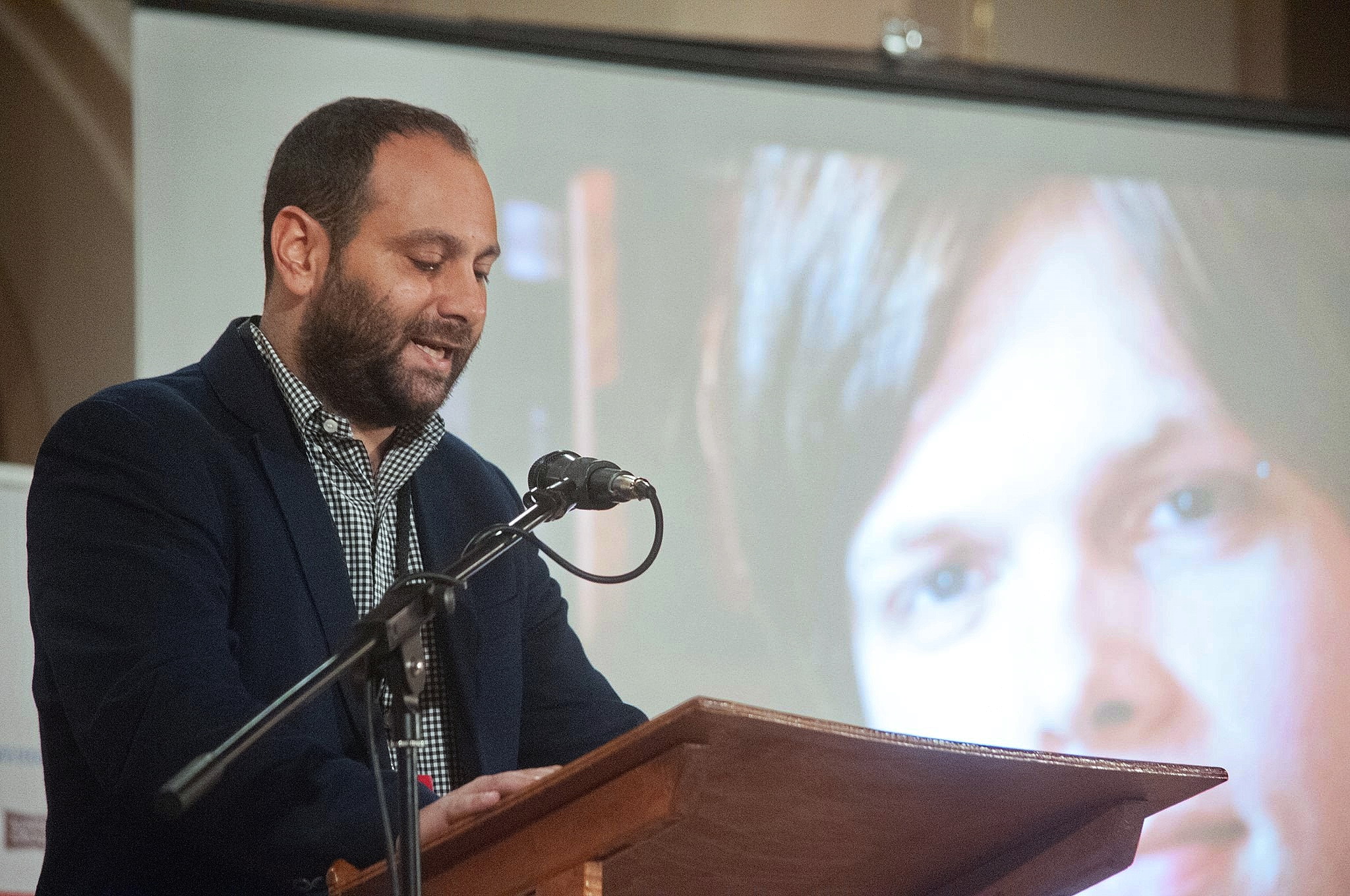Social media has revolutionized the way people live their lives, but it has also transformed the way wars are being fought according to “War in 140 Characters” — a book published in 2017 and now finally available in Ukrainian.
David Patrikarakos — a British journalist and fervent supporter of Ukraine — draws from the time he spent on the front lines of eastern Ukraine, at the beginning of Russia’s war against Ukraine that started in April 2014, to depict a modern age where “social media has flattened the space between institutions and individuals,” he wrote in his book.
“140 characters” refers to the maximum number of characters social media platform Twitter allowed in one post until 2017, when it bumped it up to 280 characters.
Born in Ukraine
Patrikarakos spent nine months in Ukraine between 2014 and 2015 to cover the conflict, which “couldn’t have been fought in the same way” without social media, he told the Kyiv Post.
“I was in Donetsk on the second night when they took the municipal building… then in Luhansk when they declared the ‘people’s republic’… then in Sloviansk the first night when they took the police station and the little green men came back,” he said, recalling his journey.
The Ukrainian translation of the book was officially presented on June 20 in Kyiv, where David Patrikarakos took the time to speak to the press and answer questions.
Patrikarakos stressed how this translation is by far the one that means the most to him because of his love for Ukraine — a country without which he would not have been able to write his book.
“From all the translations this one is the one that means the most to me… the book was born in Ukraine… almost half of it is about Ukraine… Ukraine is a country that is very close to my heart, I love this country and its people,” he said.

David Patrikarakos covered Russia’s war against Ukraine from the start in 2014. (SERG BOBRA)
Homo digitalis
Patrikarakos emphasizes in his book the role of what he calls the “homo digitalis,” people whose comprehension of social media and skills enables them to directly influence the course of modern warfare by reshaping the narrative.
Individuals such as Eliot Higgins — founder of Bellingcat — demonstrated that it was indeed Russia that provided the weapon system that fired at and brought down the Malaysia Airlines Flight 17 on July 17, 2014, in separatist-held region of Donetsk. Higgins was able to prove this from the comfort of his home in London.
Patrikarakos also argues that whereas propaganda used to support military operations on the ground, what we see now are military operations actually sustaining cyber propaganda operations.
When speaking of technology and propaganda, Patrikarakos conceded that democratic states are at a disadvantage in this modern rhetorical warfare.
“This is all very much technology driven… we’re always playing catch-up because democratic states are constrained by norms that non-democratic states are not,” he said.
A voice for Ukraine
Patrikrakos’ book was met with success. It is being taught at universities across the world and considered a must-read for British diplomats.
Since Ukraine plays such a central role in his book, Patrikarakos has inadvertently become somewhat of an ambassador for Ukraine and the conflict it wages for its integrity.
Even though he refuses to see himself as such, he declared himself honored of “any tiny contribution” that he can make to Ukraine.
